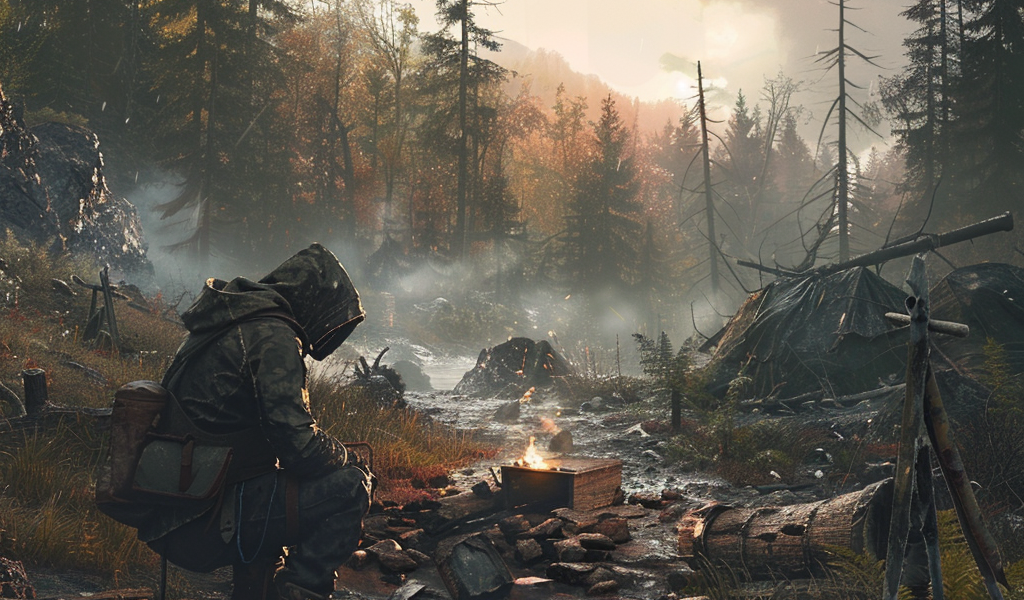In the ever-evolving landscape of video games, survival titles have carved out a significant niche, but not without attracting criticism for their repetitive mechanics and formulaic gameplay. However, one solo developer is determined to break the mold with a fresh approach to the survival genre. Sergei Bezborodko, the creative mind behind The Last Plague: Blight, is set to redefine what players can expect from survival games.
Bezborodko acknowledges the common criticisms of survival games, which often start players in a barren environment where they must gather resources, craft items, and build shelters to survive. “I feel like a lot of the survival games coming out these days follow a fairly specific formula that has shown to have success time and time again,” he explains. This formula typically includes crafting, inventory management, base building, and resource management, which can lead to a sense of monotony for players.
In an effort to provide a unique experience, Bezborodko is consciously avoiding many of these well-trodden elements in The Last Plague: Blight. He emphasizes that his game will not feature the typical crafting mechanics that have become synonymous with the genre. Instead of simplifying the crafting process, he aims to make it more intricate and realistic. For instance, players will not merely click to convert resources into tools; they will need to engage in a detailed crafting process that mirrors real-life skills.
One of the most notable features of The Last Plague: Blight is its in-depth crafting system. Players will be required to create molds and pour molten bronze to forge weapons, such as bronze blades, rather than relying on a simplified interface. Bezborodko’s approach invites players to immerse themselves in the crafting experience, challenging them to learn and adapt to the game’s demands.
This commitment to realism extends beyond crafting; Bezborodko has also chosen to forego common survival game tropes like zombies and generic resource types. Instead, players can expect a more nuanced environment that requires strategic thinking and resource management. Bezborodko aims to create a world that feels alive and dynamic, encouraging exploration and experimentation.
Bezborodko draws inspiration from non-survival games, citing titles like Fallout as influences. He appreciates how these games incorporate elements such as environmental hazards and unique storytelling, which add depth to the gameplay experience. In The Last Plague: Blight, players will encounter challenges that require them to think critically and adapt their strategies in response to the game world.
While the survival genre has its dedicated fanbase, Bezborodko’s vision for The Last Plague: Blight may attract those who have previously shied away from survival games due to their repetitive nature. By prioritizing a more hands-on and realistic approach to crafting and resource management, he hopes to engage players who crave a deeper, more rewarding gameplay experience.
As the gaming community eagerly anticipates the release of The Last Plague: Blight, Bezborodko’s commitment to innovation in the survival genre stands out. His determination to challenge the status quo may pave the way for a new wave of survival games that prioritize player engagement and creativity over formulaic mechanics.
For players seeking a fresh take on survival gaming, The Last Plague: Blight promises to deliver an experience that is as challenging as it is rewarding. With its emphasis on realistic crafting and immersive gameplay, this title may just redefine what players expect from the genre.





